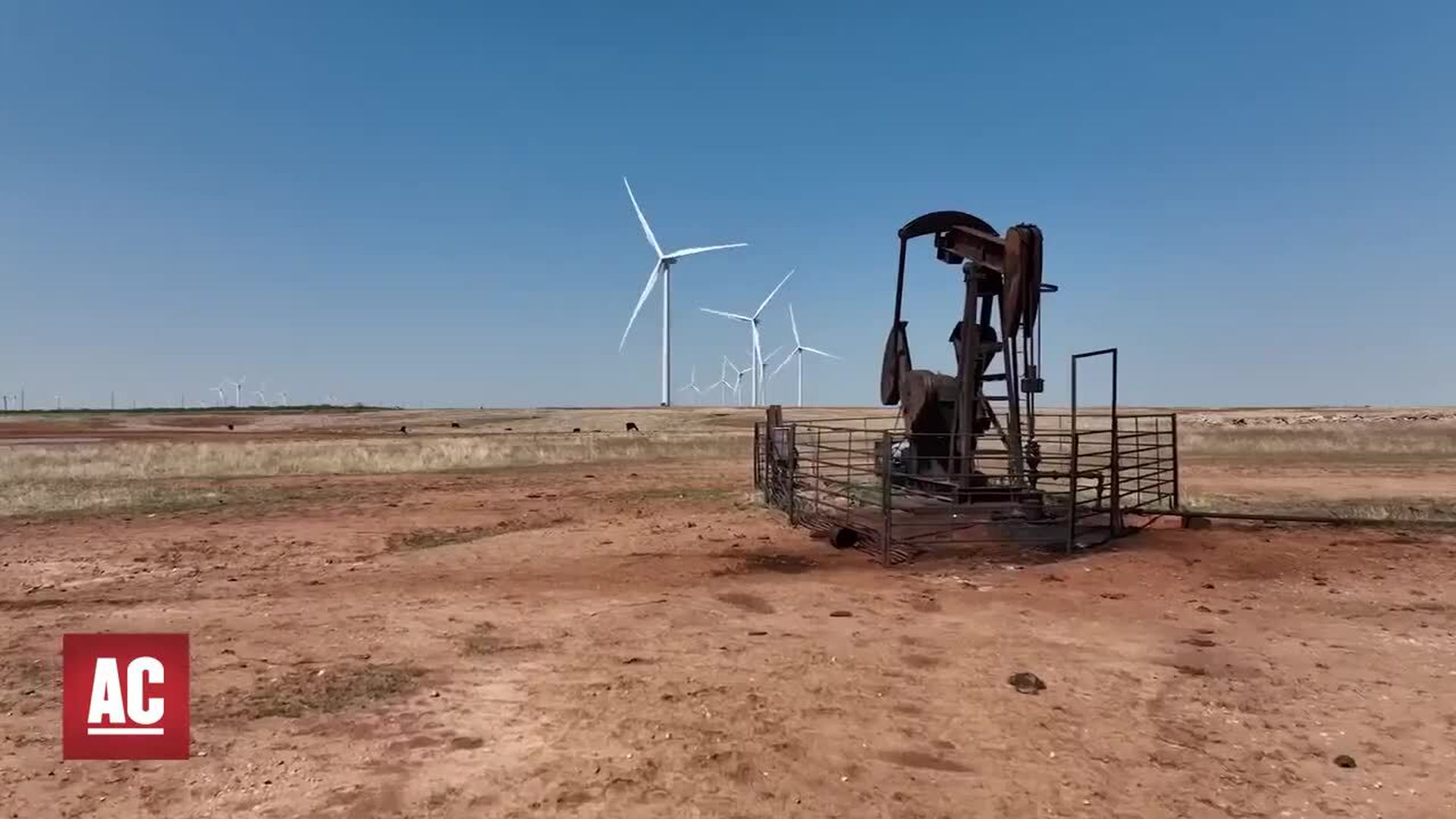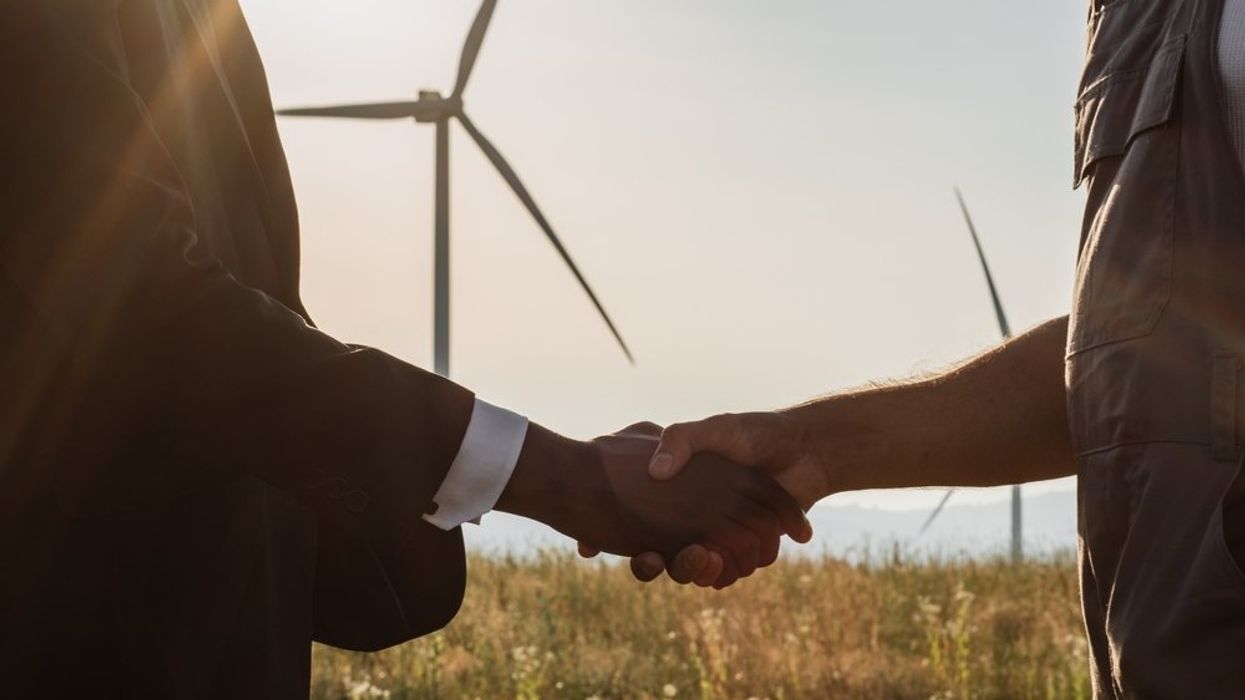
Video Source: Advocate Channel
(CNN) — Wealthy and white communities in the US and Canada were much more likely to oppose wind energy projects, according to a new study from University of California Santa Barbara researchers.
The study looked at more than 1,400 onshore wind projects across the US and Canada between 2000 and 2016, and analyzed the factors that made some communities more likely than others to oppose them.
“One of the maybe more surprising findings, at least for me going into it, was that it was more likely to happen in overwhelmingly white communities,” said Leah Stokes, the study’s lead researcher and an associate professor of environmental politics at the University of California, Santa Barbara.
Stokes added the study also found that in Canada, wealthier communities in particular were more likely to oppose the projects.
In the US, 17 percent of wind projects faced significant opposition, while 18 percent of Canadian projects faced opposition over the 16-year period, according to the study, with rates in both countries growing over time.
“Anti-wind opposition has only grown in the last decade, and you can see that very clearly in the trend line of the paper,” Stokes told CNN.
“In the early periods, it really wasn’t that common,” she said, noting the study found about one in 10 projects in both countries were opposed in the early 2000s. “By the end of this period, before the Trump era, the average rate is more like one in five.”
In the US, opposition was especially concentrated in the Northeast, comprising New England states, plus New York and New Jersey. In Canada, opposition to wind was strongest in Ontario.
Opposition to wind energy has only been sporadically tracked and documented across the US and Canada, Stokes said, and “we really wanted to get a sense of how common this was.”
To do so, researchers combed through thousands of newspaper articles. They cross-referenced the places where wind opposition was popping up and used a social science technique called name classification to understand geographically and demographically where it was happening.
“This is really the first time that’s ever been done at this scale,” Stokes said.
Notably, the research found the politics of a state didn’t necessarily predetermine how receptive or opposed communities were to wind projects. Pockets of opposition in the US were stronger in liberal Northeast states, while there is greater acceptance and a bigger wind boom in some traditionally Republican states like Texas and Oklahoma.
“Party ID doesn’t matter for opposition” in the US, Stokes said. “You’ve got places like Texas, for example, that are building a lot of wind, and then you have places like the Northeast that are opposing a lot of wind, [who] are Democrats.”
Stokes added, however, that there is a noticeable partisan split around wind in Ontario, Canada, because the country’s Liberal Party proposed a lot of wind projects and is associated with them.
John Rogers, a senior energy analyst at the Union of Concerned Scientists who wasn’t involved in the study, said part of the reason opposition in the Northeast is so high could be the higher population density and comparatively less space for wind turbines.
“If you think about the wind belt in the Midwest down to the lower Great Plains in Texas, it’s a lot of land and a lot fewer people,” Rogers said. “If you think about where wind would typically have to go in New England, it’s on ridgelines.”
Stokes and Rogers said communities of color who are situated closer to power plants running on coal or gas can end up bearing the brunt of the choices of these white and wealthy communities who reject wind power.
“We have coal plants, gas plants, that operate in these communities,” Stokes said. “If you stop building clean energy resources because you don’t want it, what you are doing is imposing pollution onto other people’s backyards.”
Rogers said that while wind projects need to get buy-in from the communities they’re developing in, the study shows that white and richer communities have more power to approve or kill projects.
“We need to be thinking about the way that energy privilege and whiteness and wealth come into decision-making,” Rogers said. “There are lots of people in lots of communities that see real value in wind power development, we shouldn’t allow whiteness or wealth to dictate how much of that gets to happen or doesn’t get to happen.”
The-CNN-Wire
™ & © 2023 Cable News Network, Inc., a Warner Bros. Discovery Company. All rights reserved.
- What Is Underground Climate Change, and Why Is It So Dangerous? ›
- Republican States Will Feel the Brunt of Climate Change, Despite Denying It Exists ›
- How Farming in Cities Can Help Us Weather the Climate Crisis: Urban Agriculture, Explained ›
- 'Green Colonialism': Indigenous Leaders Decry Western Climate Strategies ›

















































